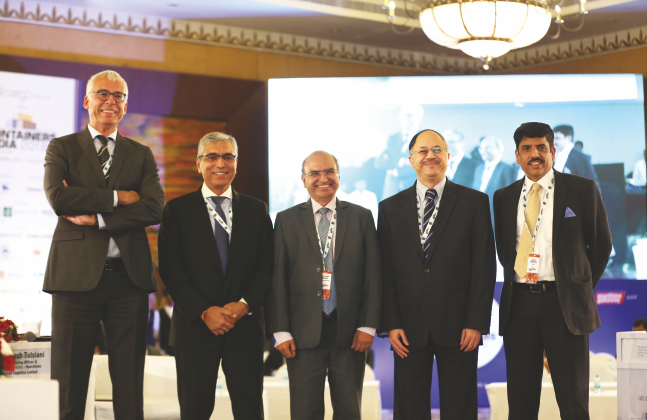As digital disruption sets its foot businesses are adapting to it, but there are concerns of security, high costs involved and a need to change the mind-set of the people, these are some of the key aspects discussed during the session
Digitalisation is no more an option but it’s a must for businesses to survive and adapt to this disruption. It starts with changing people’s mind-set, said Luc Arnouts, Director International Relations and Networks, Port of Antwerp. If we don’t get our digital act together I can assure you somebody can get his act together, this could be Amazon, Google or Alibaba. I was one month ago in China with Alibaba, I was completely surprised by how far they are in digitalisation. If these guys takeover then we will be irrelevant. They may need us to do the job, but the orchestration will be completely out of our hands. So we need to get our digital act together for regular business. Complex matters like project targeting will need all of us and our skills, but in the container business, I highly doubt that if we don’t get our act together then Alibaba will do it and everybody will just go into the white box to get his goods from AtoB and we will be performing at our lowest price without focusing on quality.
The mind-set has to be changed. How do we do this? We realised inside our company that we were focused pretty much on traditional things, but if we really want to create innovation we need relevant skills in our organisation. A lot of companies in our sector are hiring innovation managers, which is an important step for many companies to really focus on innovation by giving it full dedication. You cannot do this by asking your IT manager or your operations manager to bring-in some innovation, it doesn’t work that way.
In the past one and half year we have completely changed our organisation structure and each person has to become disruptive and reapply for his job by going through an examination to check what their mindset was? These are certain things we need to do to make our organisation adaptive to change.
“As an organisation if we do not embrace change we will be wiped out,” said Prakash Tulsiani, Chief Operating Officer & Executive Director – Operations, Allcargo Logistics Ltd. We look at our business and disrupt it probably. Look at the business and see how differently we can do it for betterment of customer experience, making it seamless while bringing transparency and reliability that builds trust. For this we will have to embrace technology and we know if we don’t do it some outsider will do it and we will remain as a service provider, maybe because we hold the infrastructure or we have that experience of physically transporting goods and doing logistics. We have a dedicated team that looks at the next step for us that will inspire our clients? Once we decide on what’s next then it filters down to each vertical to take it further.
Coming to the community part of it, at many associations we represent, the thought for embracing technology and transparency is coming in. A latest example is the recent PCS which is coming in and all stakeholders are working together to ensure we bring in the change which is needed to make it easier for our customer.
Satish Lakkaraju, Chief Commercial Officer, Agility Logistics Pvt Ltd, detailed on Agility’s plans to tackle cyber security and the future threats with IoT involved. “Technology can be good, disruptive, but at the same time it can put you on your knees because you are not maintaining manual records.” India is definitely taking the lead in being disruptive while dealing with security aspects as well. Agility’s development center for its global operations is setup in Hyderabad. So anything happening in Agility with respect to change in technology starts in India. But the cost of using technology is extremely high and it is not being passed on to the customers which is a concern, revealed Satish.







